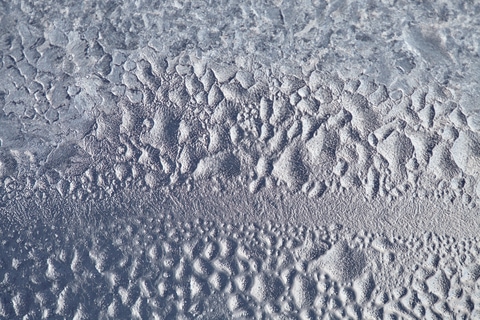How Will Humidity Affect Viruses In South Jersey This Winter?[2023]

Has your home been comfortable this winter? We’re not just talking about being warm, but has it been COMFORTABLE? We’re not even talking about insulation or a heater tune-up (although that’s always a good idea!). Instead, we’re thinking about indoor air quality— and how controlling the humidity in your home affects the transmission of viruses.
Before we go any further, let’s stress that we’re not saying anything here to try and panic you. Nor do we want to scare you into buying anything you don’t need.
Instead, we’re shedding light on an often overlooked topic: how humidity affects viruses, especially in the winter.
A little knowledge goes a long way. Once you know what you’re looking for, you can take some easy steps to improve your comfort and indoor air quality this winter.
Most of these strategies cost little or nothing to implement. They’re more about understanding what’s at play here. Others involve your heating and cooling system.
If you have any questions about the indoor air quality in your home in Upper Township or anywhere else in South Jersey, call or email Broadley’s today.
Relative Vs. Absolute Humidity
The first step here is distinguishing relative vs. absolute humidity. This part is a little pedantic, but it’s worth sorting out to understand why things work out the way they do.
Any time you see or hear humidity expressed as a percentage, you’re getting the relative measurement. That’s how much moisture is in the air compared to how much the air can hold.
It’s an important measure because it changes with the seasons. And, it affects how you feel.
Warm air naturally holds more moisture than dry air. Therefore, it takes longer to get saturated or reach 100 percent. And, it gets really muggy.
On the other hand, cold air can’t hold as much moisture. So, it always feels drier than in the summer. We’ll get into what that means in a practical sense in a moment.
Absolute humidity gets measured in cubic inches of moisture. But, that’s not as important here, because the relative measure tells you how muggy or dry it feels.
Low Humidity In the Winter
Even though you’re near the water, your Upper Township, NJ home can still get very dry in the winter. Part of the reason is that there’s naturally less water vapor present. But, it goes further than that.
Your furnace heats the air that’s in the house. That air is already dry. But the heat increases without adding moisture.
That drives the relative measure down even further. The air is now unnaturally dry.
This is why people get dry, cracking skin, and nosebleeds in the winter. The air is way too dried out. You may also notice wood furniture cracking from lack of moisture.
Now, let’s get into what that means for viruses.
Humidity And Virus Transmission
Low humidity makes it easier for viruses to travel and for them to enter the body. That’s why winter is flu season: It’s much easier for the particles to spread and infect people than in the summer.
When there’s a lot of water vapor in the air, viral particles attach to the water molecules. The moisture weighs them down, so they don’t travel far before dropping to the floor.
However, the dry winter air means nothing is weighing down those virus particles. So, they travel much further. Now, one sick person can infect more people that are further away from them.
Meanwhile, those nosebleeds and cracks in the skin and nosebleeds are like chinks in your body’s armor. Tiny particles can enter through those breaks. That increases the risk of infection.
Humidity And Overall Air Quality
The way to use humidity to your advantage in the winter is by increasing it. But, of course, you don’t want to go overboard. Too much moisture means warping floors and peeling wallpaper.
And it can make your allergies flare up as dust and dirt also fuse with the water droplets. These larger particles end up hanging in the air, where you breathe them in more often.
So, what’s the sweet spot? Going back to the relative measure, you want to keep your home between 40 and 60 percent humidity throughout the year.
In the next section, we’ll talk about how to do just that. But first, you should invest in a humidistat. Don’t worry — you can get one for under $20! Or, upgrade to a thermostat that measure it along with regulating your heating and cooling system.
This way, you’ll know what levels you’re working with to start. Then you can determine what you need to do — and if you’ve gone too far in any one direction.
Controlling Humidity In the Winter
You can control the humidity in your home during the winter by:
- Boiling water
- Getting House Plants
- Showering With the Door Open
- Getting a Whole-Home Humidifier
Now that you have a humidistat, start with some DIY strategies to get the levels where you want them.
Boiling Water
When you boil water, you’re putting moisture into the air in your home. So, do it more often in the winter! Switch to tea if you usually drink coffee. Or, put on the tea kettle randomly during the day.
Even just filling bowls with water and leaving them out adds moisture to the air. It’s an excellent alternative to turning on the stove for no reason. Just be sure to place them up high, so they’re out of the way.
Getting House Plants
Plants inside can spruce up the house while adding humidity. Since you’re watering them, there’s more moisture around. And they release moisture into the air through their leaves and stems.
Showering With the Door Open
Showering with the door open lets all that steam spread through the house. And, there are some alternatives if you’d rather keep the door closed.
First, you can vent your dryer to exhaust in your house instead of outside. This is safe because it’s not expelling any gas. All that’s coming out is steam as the machine heats your clothes. Or, air dry your wash inside. That water evaporates into the air.
Back in the bathroom, you can wait until bathwater cools before draining it. Leaving it that long lets it start to soak into the air.
Getting a Whole-Home Humidifier
Not everyone’s into the DIY stuff, and we get that. In this case, you want to consider a whole-home air purifier. They work the same way as the ones you plug in to treat a bedroom.
But, these hook directly to your heating and cooling system. This way, they work automatically, just like your heater does. And it covers the entire house in one shot.
It’s more of an investment, sure. But, it’s also the most effective.
HVAC Service Near Upper Township, NJ
If you’re looking for more ways to control your humidity in Upper Township, NJ, you’ve come to the right place! Broadley’s has been providing HVAC service for nearly a century in South Jersey, and we’re keeping up no the latest indoor air quality developments.
Call or email us today for a free consultation. We’ll learn more about you, your home, and your needs. Then, we’ll help you design a strategy that’s perfect for you.
